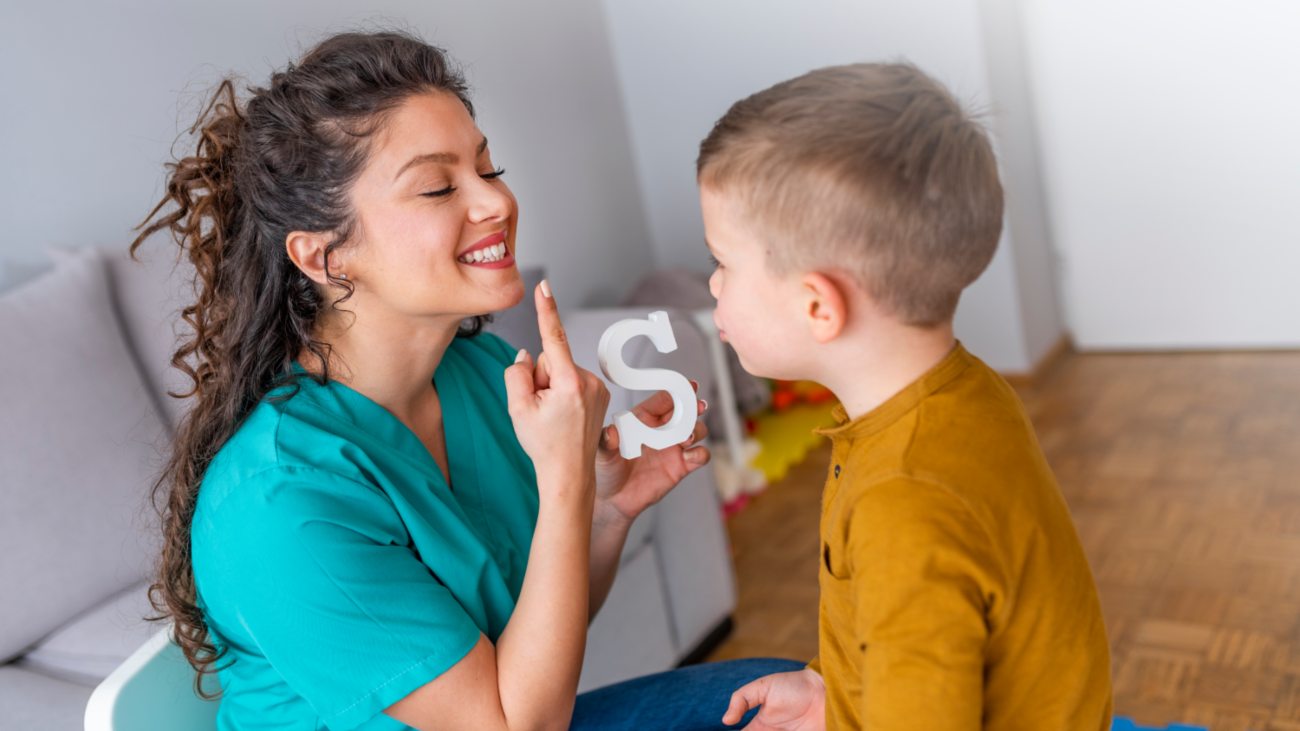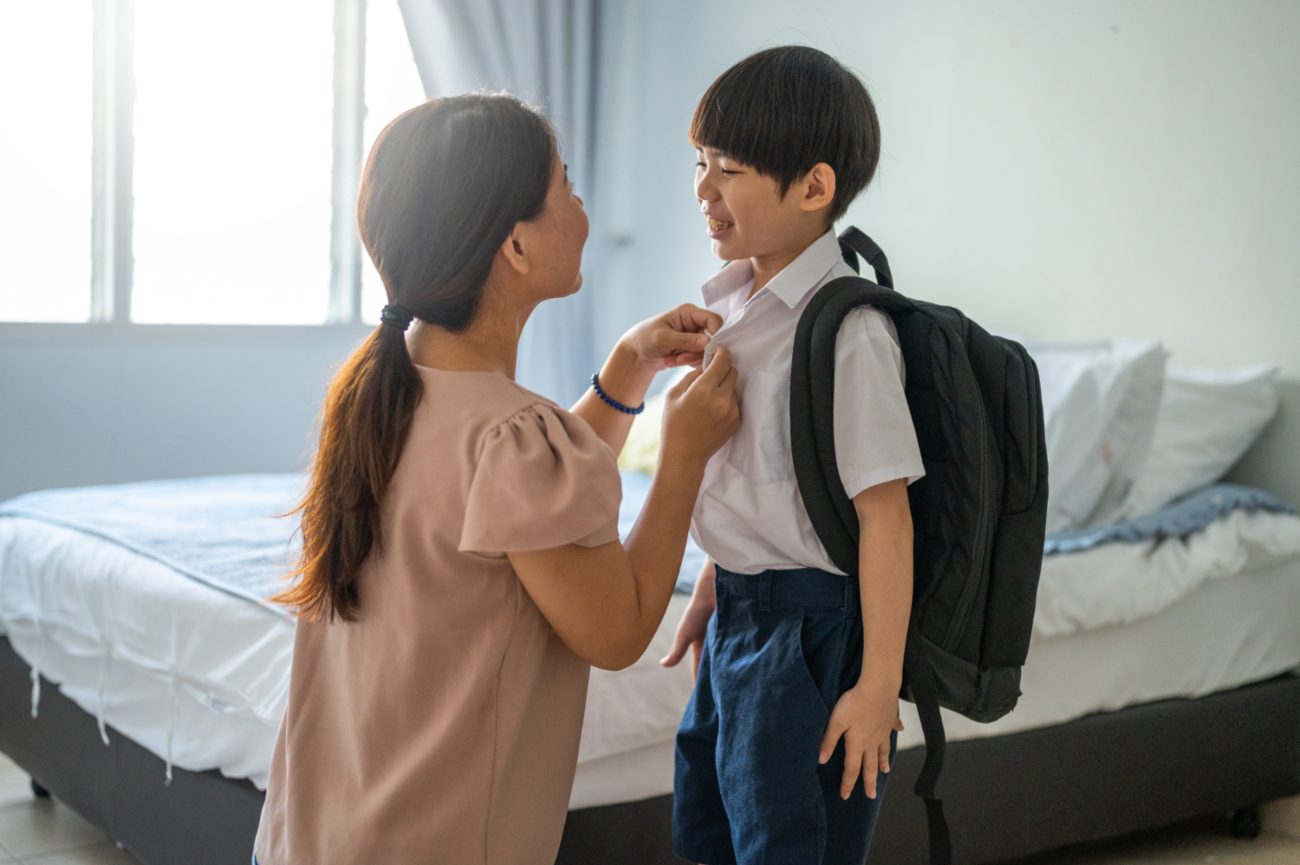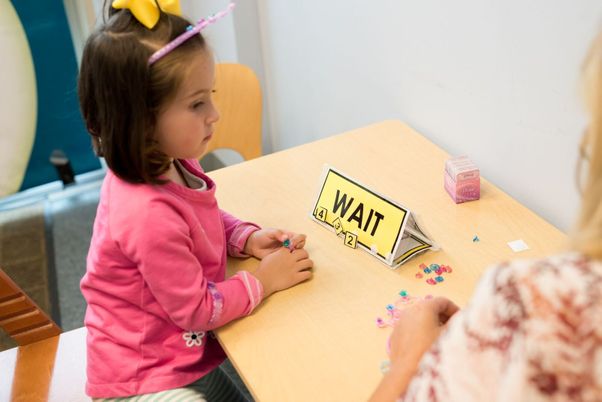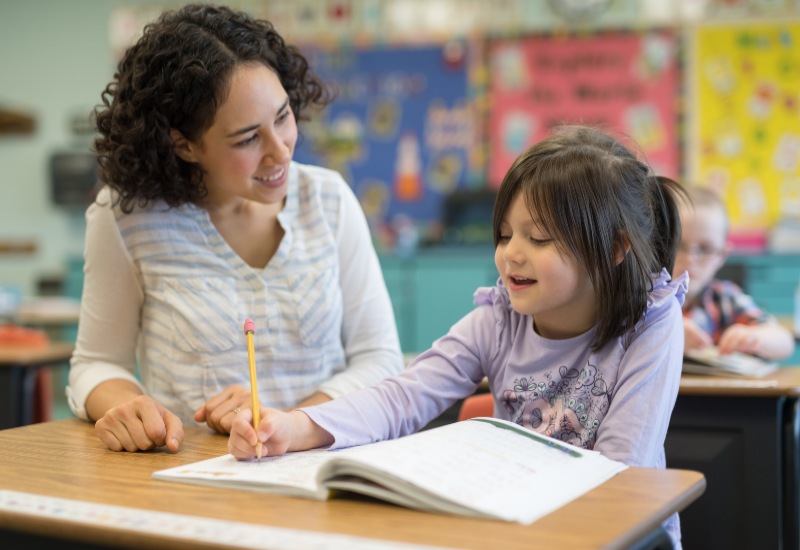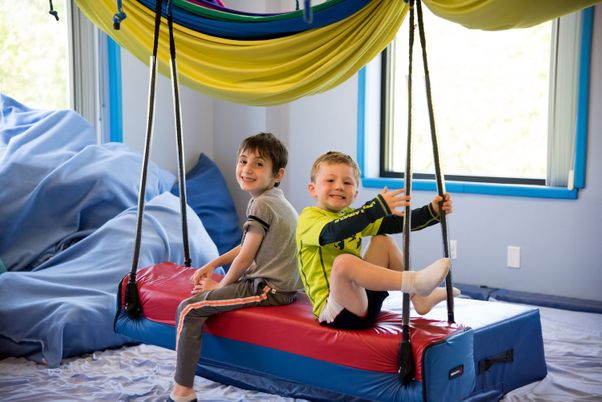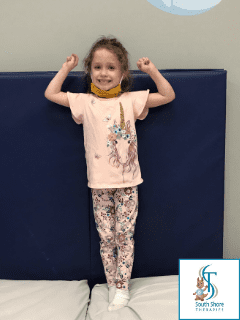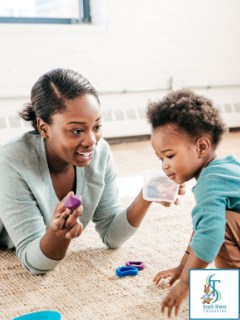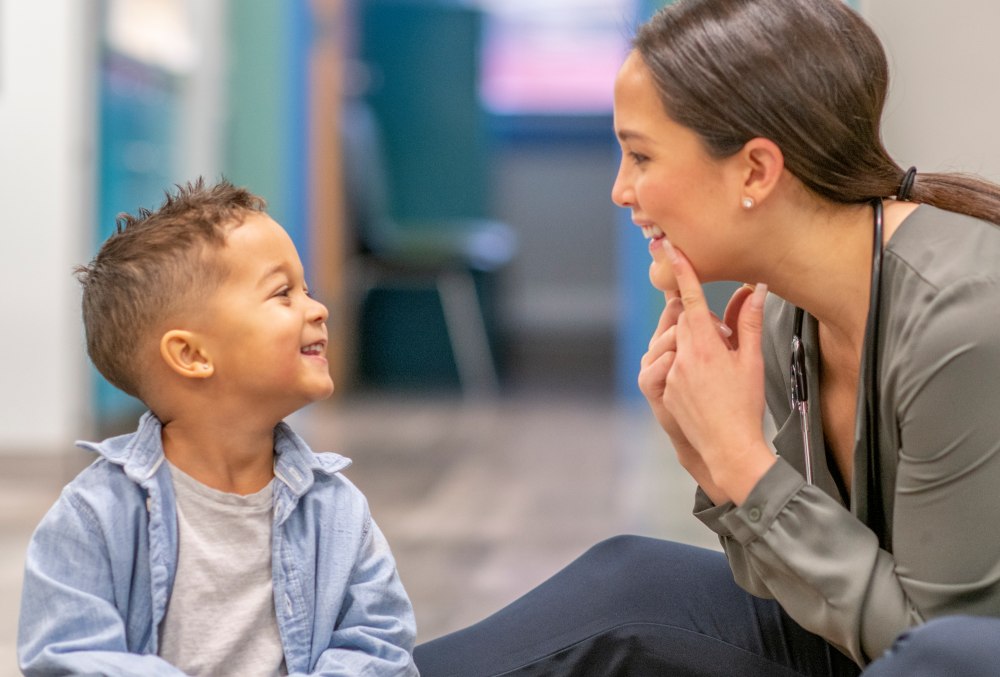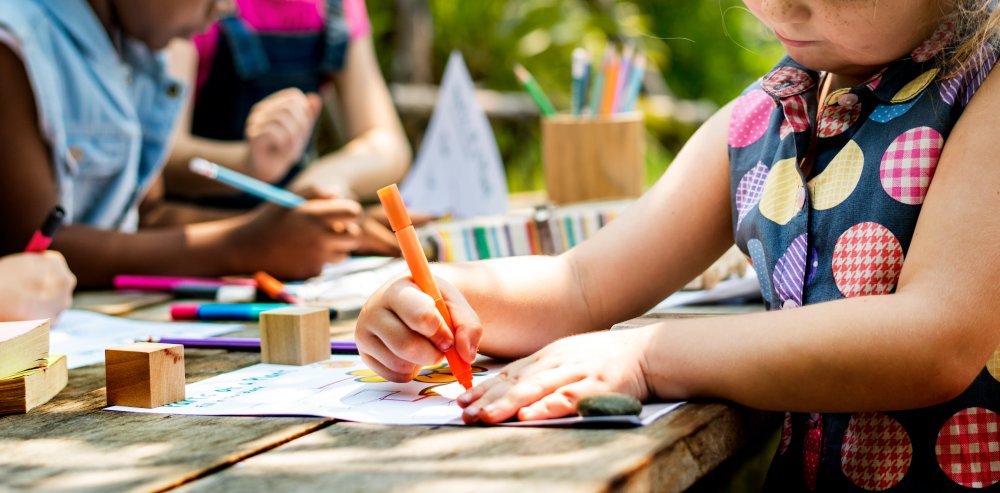As we navigate through a global pandemic and the multitude of changes that brings about, now more than ever our children are expected to adapt and “go-with-the flow”, but that isn't always the reality. As caregivers, it is our role to identify when and why these behaviors occur. Read more to learn about common triggers and how you can start to predict the when and why behind your child’s meltdowns.
Common Triggers for Behavior:
As we navigate through a global pandemic and the multitude of changes that brings about, now more than ever our children are expected to adapt and “go-with-the flow”. But what happens to those children who struggle with flexibility, executive functions, or sensory? What about the kids who just didn’t sleep well last night, had a scuffle with a friend, or are just having a bad day? These kiddos often have trouble keeping up with the demands and, as a result, they have a meltdown.
As caregivers, it is our role to identify when and why these behaviors occur. Read on to learn about common triggers and how you can start to predict the when and why behind your child’s meltdowns.
Why is my child having meltdowns all day long?!
Anything and everything can be a stressor, or a trigger, for your child’s behavior. Let’s first think about sensory processing difficulties. Have you ever noticed when you are driving that you turn down the radio in order to read the street signs? This is your body’s way of controlling sensory input in order to avoid being overwhelmed and dysregulated. For children, this can be exceptionally hard. When their nervous systems are taxed and they aren’t able to cope, something as trivial as putting on their coat before heading out to play may lead to a meltdown.
Now let’s add in a social demand. Pretend you are at the playground and your child (who is begrudgingly wearing his bulky jacket) is surrounded by new kiddos. Some children are social butterflies, but others may be shy or unsure of how to interact with peers. Rather than saying “hey, can I have a turn with the truck?”, instead they try (unsuccessfully) to snatch the toy out of the other child’s hand- enter meltdown number two.
Fast forward to lunch time and your child is eagerly sitting at the table waiting for his food. He tends to be a selective eater , so he knows you are making his favorite grilled cheese because that is what he has for lunch every day. When you put his plate down in front of him, he picks up the sandwich and throws it on the floor as he bursts into tears. What you may not have noticed is that you used white American cheese today instead of the yellow kind that he normally has (hey, it’s a pandemic and the grocery shelves are slim pickings these days). For kiddos who struggle with changes in their routines or expectations, these simple switches can result in big tears and lots of frustration.
You and your kiddo have finally regrouped after the grilled cheese debacle and you are heading out to day one of soccer practice. He seems nervous but says he is excited to score a goal. When he gets onto the field, though, and the coach starts to teach the first dribbling drill, your child fumbles a little and then kicks the ball directly at another kiddo, sending them both into tears. Turns out, dribbling is harder than it looks and as your little one attempted this new skill, he quickly felt a lack of self-confidence and feared that the other kids were better than him. These perceived failures can be another big trigger for behaviors in our children.
While these scenarios are all hypothetical, they are also very realistic to so many of us. And although these stressors are some of the most common causes for behavior, it’s important to remember that the list of triggers goes on and on. Keep in mind that things like anxiety, fear, sleeping patterns, time of day, environment, temperature, etc. are all other factors that can influence behavior.
Predicting Behaviors:Time to put on your detective hat!
When attempting to avoid a meltdown, we as the adults must look at the whole picture. Using the ABC method can help us be good detectives to begin understanding when a behavior may occur and what we can do to prevent it.
A is for Antecedent.
Sometimes behaviors can come out of nowhere and it seems as if the child went from 0 to 60 in no time at all. But, if we really stop and think about it, often times we are able to see things brewing before the explosion. Start to keep track of what was happening right before the behavior occurred. Where were you? What was the child doing? Was a specific demand or direction given? Are there other kids around? All these pieces of the puzzle may seem insignificant, but as you start to keep track you may notice patterns- perhaps your kiddo is having a meltdown every time you sit down to work on math homework because he doesn’t understand the concept of division, or maybe he screams and fights getting dressed on rainy days because he hates the way his raincoat feels. Do a little digging and you might be surprised by what you find!
B is for Behavior.
This is, of course, the obvious step in the ABCs and may seem less important. Don’t be fooled- the behavior itself can tell us a lot about why the child is upset. For a child who is biting her peers during circle time, the action itself (the bite) may indicate a sensory issue- she might be sensitive to touch input and when her peers sit close to her and brush up against her arm, her defensive response is to sink in her teeth. Similarly, the pre-teen who verbally lashes out every morning before school may be struggling with executive dysfunction - getting himself organized and out the door is a nearly impossible feat so he opts to say things like “school is stupid”, “I hate my teachers”, or “I quit school”.
C is for Consequence (sorry, Cookie Monster).
The word consequence itself carries a very negative tone but it doesn’t always have to mean something bad. In this case, looking at the ABCs of behavior, the consequence is simply what happened immediately after the behavior occurred. Sometimes it may be a punishment, other times it may be more neutral, and, occasionally, if the behavior was something positive, the consequence may be a good thing. Let’s go back to the boy who tried to take the truck from another child on the playground. The action, or the behavior, was grabbing the truck; the consequence was the other child crying and walking away with the toy still in his hand. Now let’s consider a situation where the consequence was more positive. Picture your child sitting in class and the teacher spilling her coffee on the floor (a tragedy for sure!). Your child, being the kind-soul that he is, walks over with paper towels and starts wiping up the mess (cleaning is our behavior here). The consequence to his kind action is the teacher praising him for being so thoughtful and offering a free homework pass for the night. Of course, this made your child feel good and feel happy, which helps to encourage him to engage in more of these positive behaviors in the future.
If you want to learn more about the ABC approach to predicting behavior patterns, check out THIS video from Smarter Parenting.
Learning to predict and manage behavior is an ongoing process. Remember that progress takes time. Be patient, stay calm, and always remember to isolate the incident. Although it is easier said than done, do your best not to carry a grudge and not take any behavior personally. Bear in mind those triggers that can influence behavior and start to work as a detective to anticipate when your child might have a meltdown. Most importantly, remind yourself that even the best behavior detective can’t avoid every meltdown.
Now that you have your detective hats on, want to learn the more about the HOW? Click HERE to learn some our favorite tips & tricks to help you and your child through those tough times.
We hope you found this post helpful. Click HERE to learn more about what services and supports South Shore Therapies has to offer. Results that make a difference.
Contact Us
